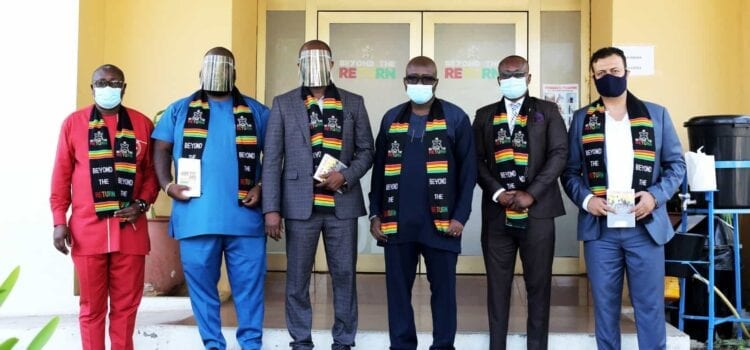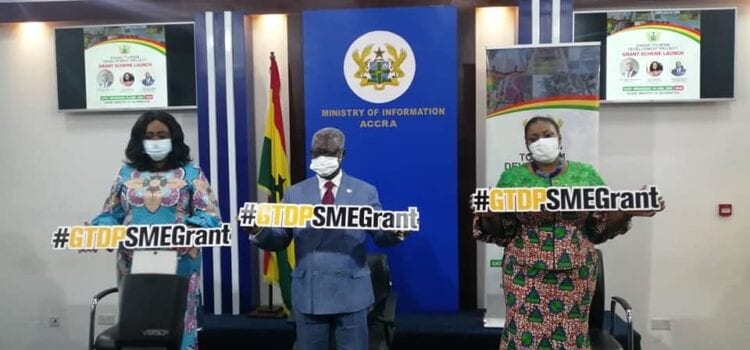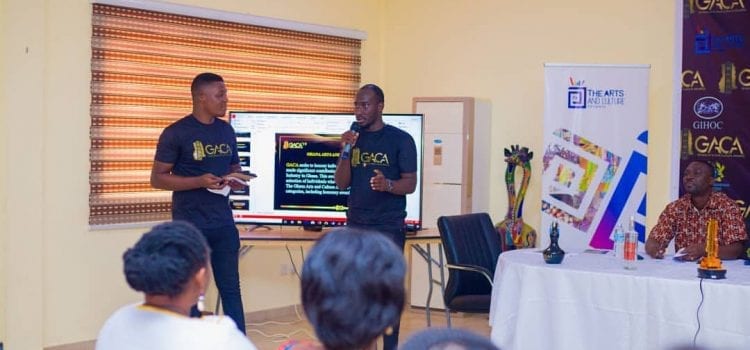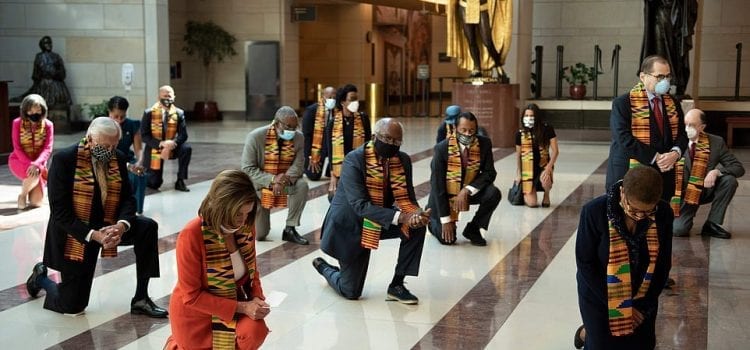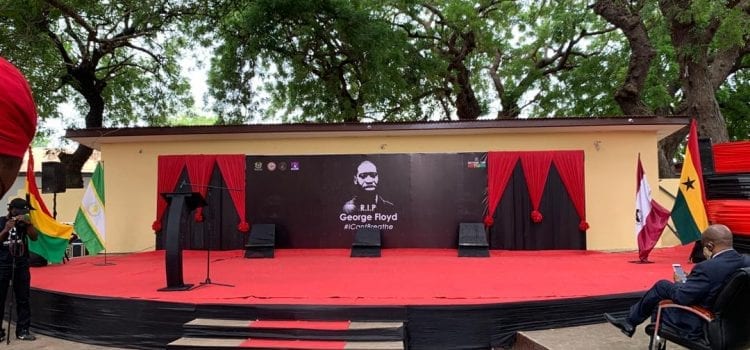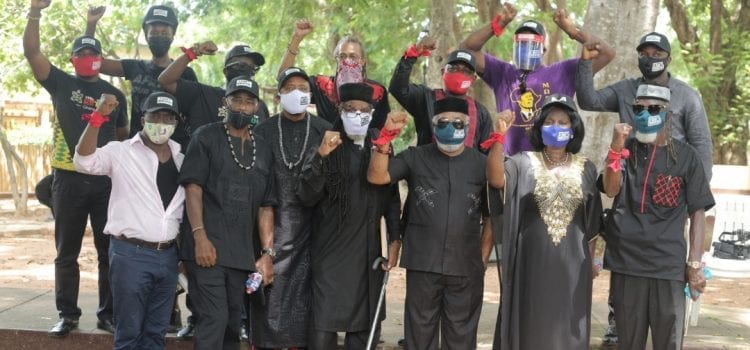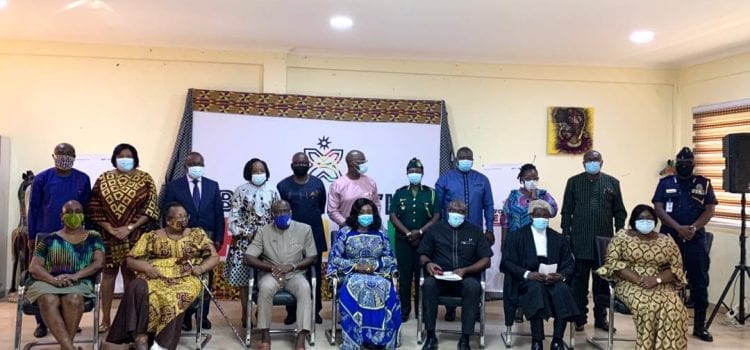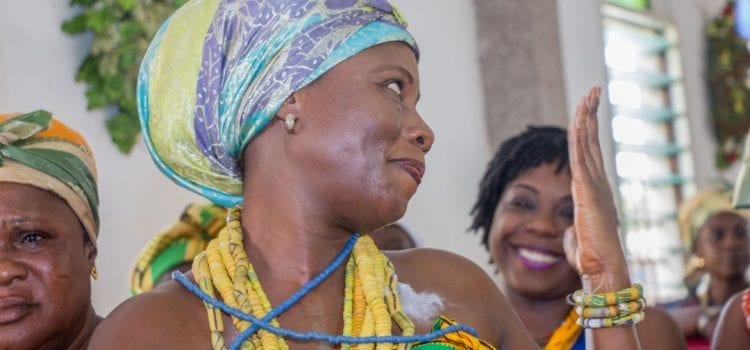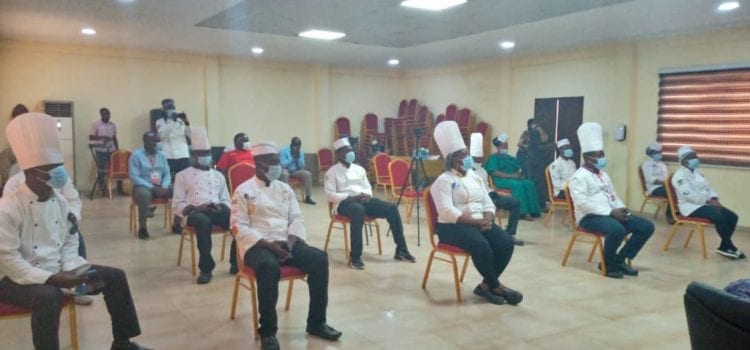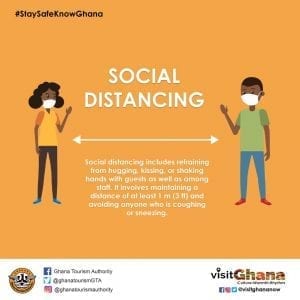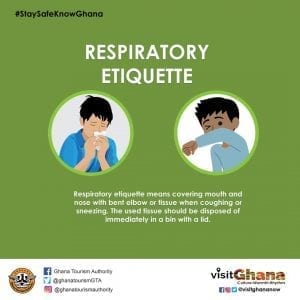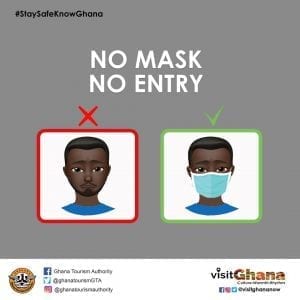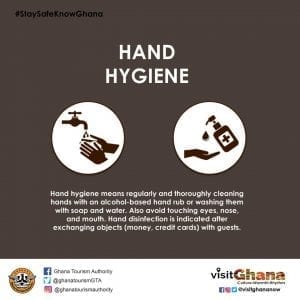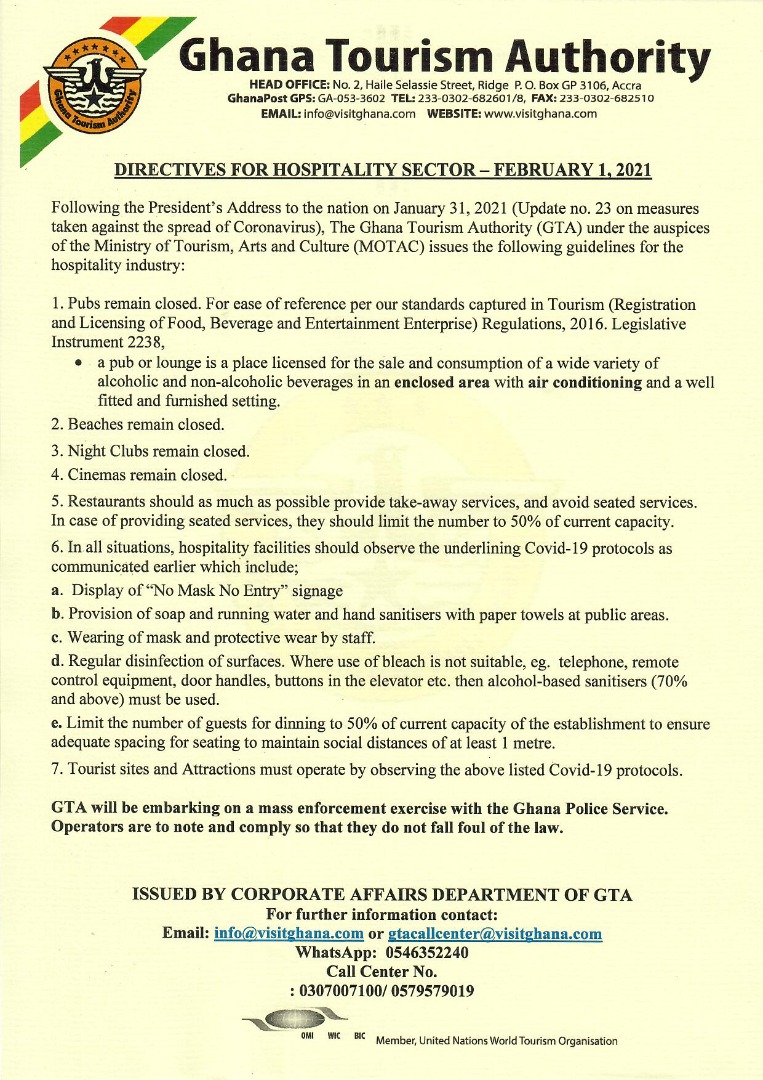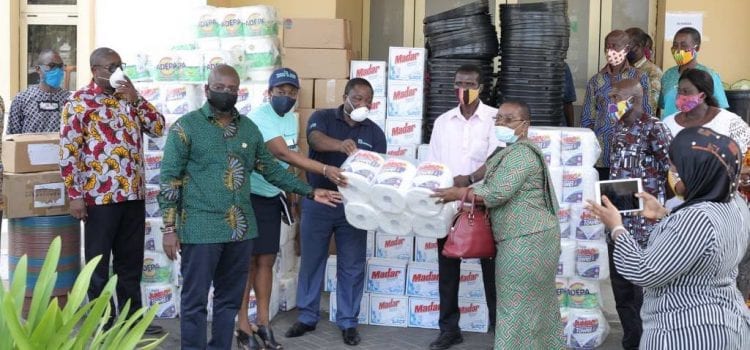GFA Boss Pays Courtesy Call On Ghana Tourism Authority
The President of the Ghana Football Association, Mr. Kurt Edwin-Simeon Okraku has paid a courtesy call on the CEO of the Ghana Tourism Authority, Mr Akwasi Agyeman to discuss ways of strengthening ties between their respective industries. He was accompanied by Head of Marketing, Jamil Maraby, Chief of Staff, Michael Osekre and the Deputy General Secretary, Emmanuel Newton Dasoberi.
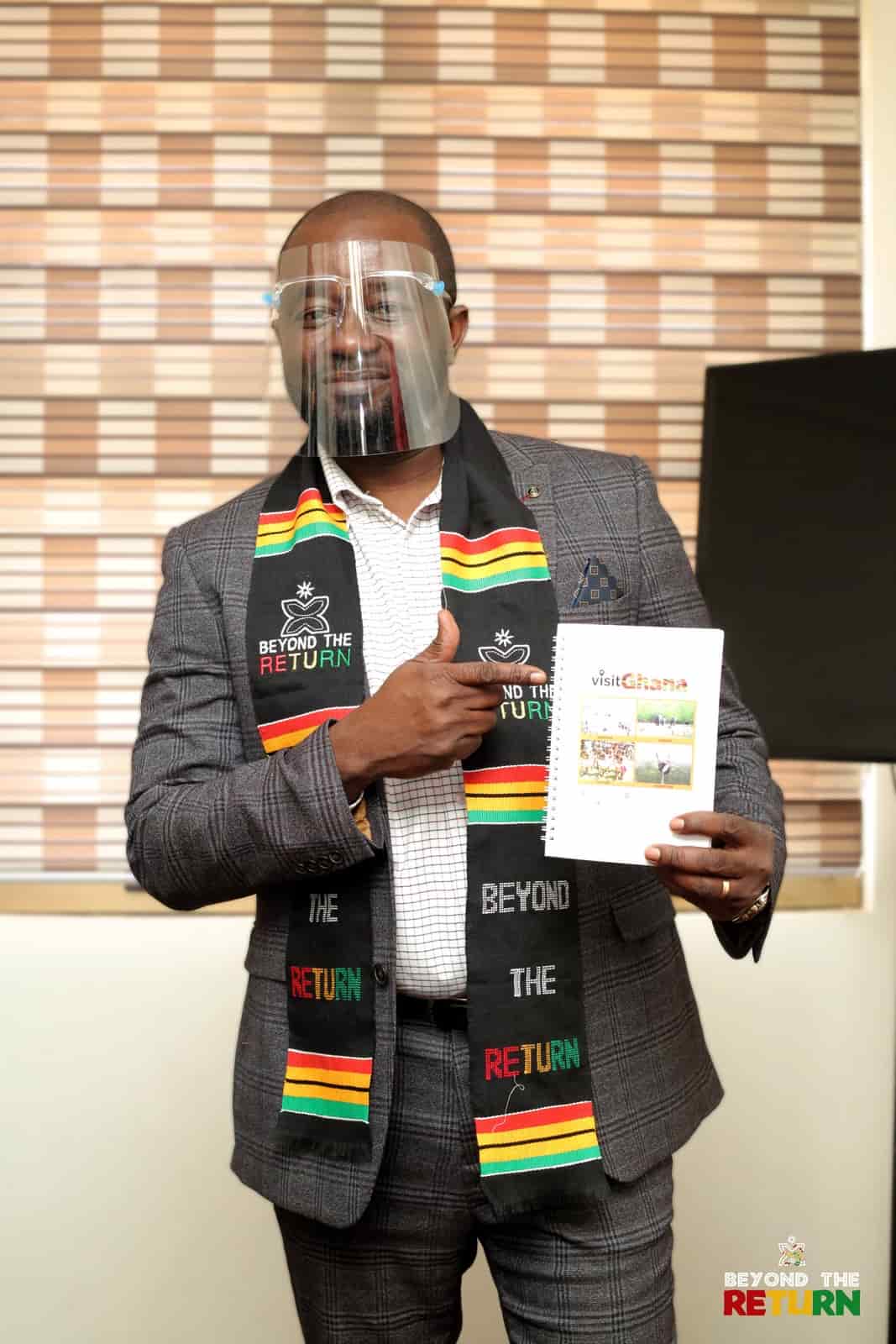
The brief meeting was held at the headquarters of the Ghana Tourism Authority in Accra on 24th June 2020 and were received by the CEO of GTA, Mr. Akwasi Agyeman along with the Head of Corporate Affairs, Jones Nelson, the Chief Marketing Officer, Alfred Asumadu, the Manager for Projects, Development and Investments, Ben Anane Nsiah and the Deputy Chief Executive in charge of Operations, Ekow Sampson.
During the discussion, The GFA President touched on the similarities of goals that both industries have touted, that is the shared interest in bringing together Ghanaians and tourists through sports and culture. ”Football is a vehicle which drives tourism and allows for the opening up for foreign investors” he said at the meeting. He further recounted the vibrant history of football in Ghana and linked its significance to tourism and culture and mentioned how there is an apparent divide in their journey. He called for greater inclusion in the ‘Beyond the Return’ campaign wherein the sport of soccer can be used to ramp up tourism and unity among Ghanaians and outside Ghana.
Head of Marketing for the GFA, Jamil Maraby presented ideas that both organisations could use as a means to drive up interest in both sports and tourism and create new avenues for foreign exchange.
It was noted that to boost domestic and international tourism, projects like Ghana World Football Tours, Road Shows, Culturally inspired football friendly matches among others, as well as a Football Museum would be beneficial to both industries in bridging their interests.
The CEO of Ghana Tourism Authority expressed optimism in the conjoining of ideas and concepts for the positive growth of both the football and tourism industry. He further mentioned the severe impact of the ongoing global pandemic on the industry, explaining that greater interest lie within domestic tourism for now, using the See, Eat, Wear, Feel Ghana campaign. He indicated the preparedness to work with the GFA and lauded their efforts in keeping the football industry afloat during such unprecedented times.
Tourism and Football have the potential to create jobs, unite locals and visitors, as well generate revenue for the industry and nation at large.
Ghana Tourism Development Project Grant Scheme Launched
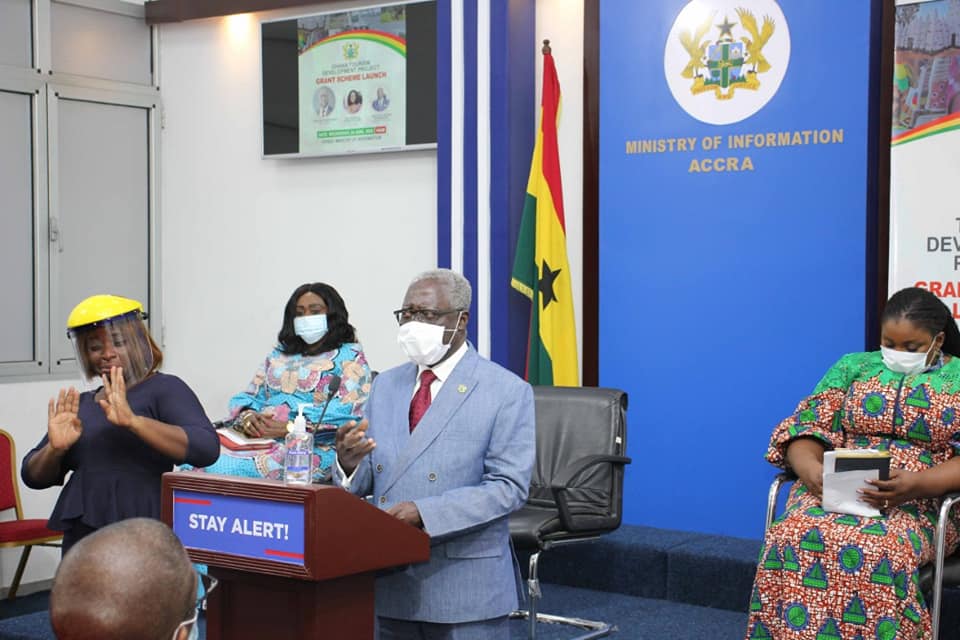
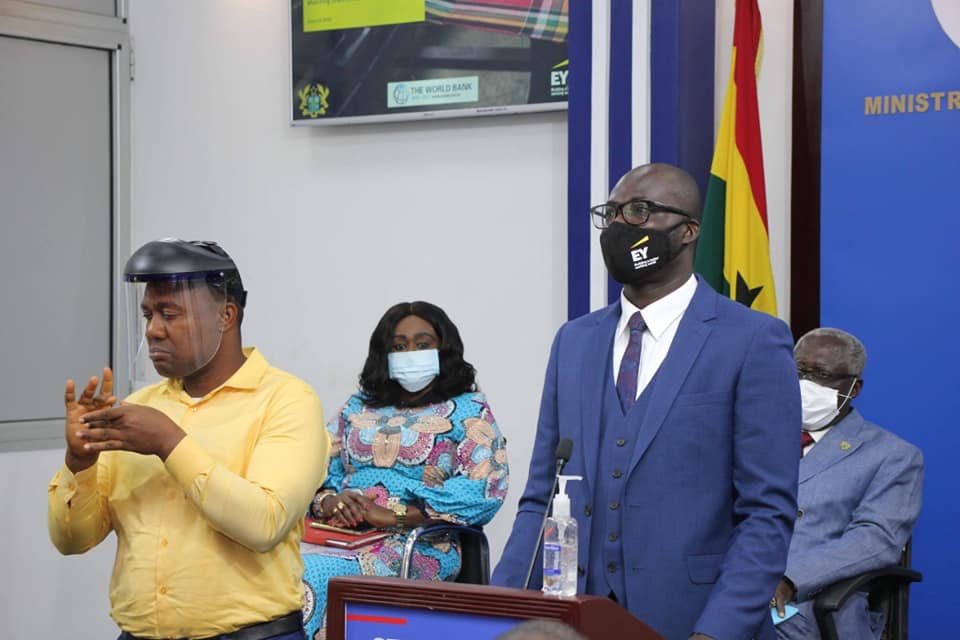
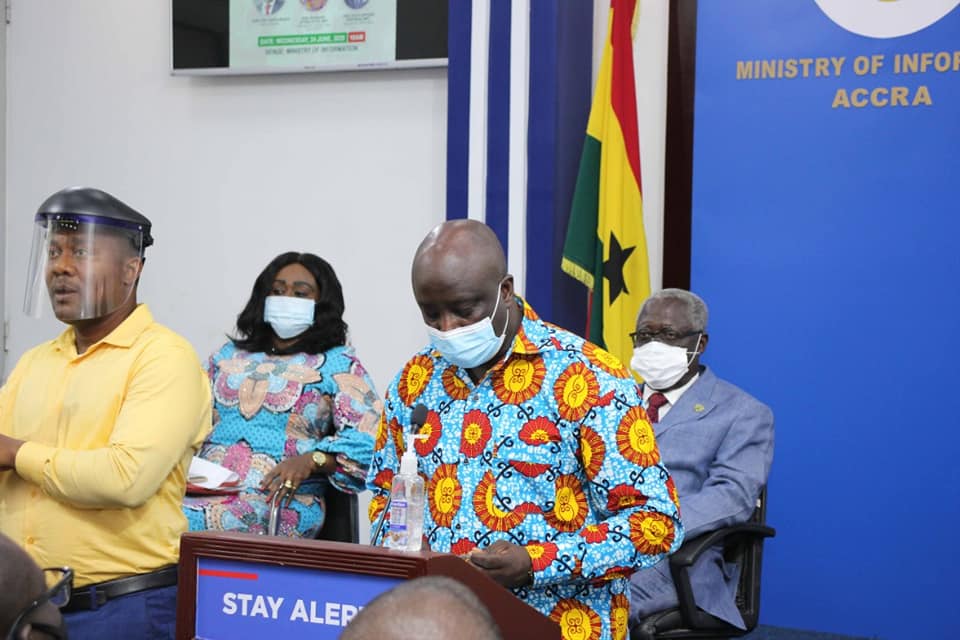
Ghana Arts & Culture Awards Opens Nominations For 2020
The Arts and Culture Company, organizers of Ghana Arts and Culture Awards has officially opened nominations for this year’s award ceremony.
The award ceremony which is aimed at acknowledging and honoring stakeholders, forerunners and key players of the Arts and Culture industry has opened nomination to the general public to nominate their favorite personality or brand. The award which started in 2019 saw government agencies and institutions showing interest due to its credibility and unique touch attached to it.
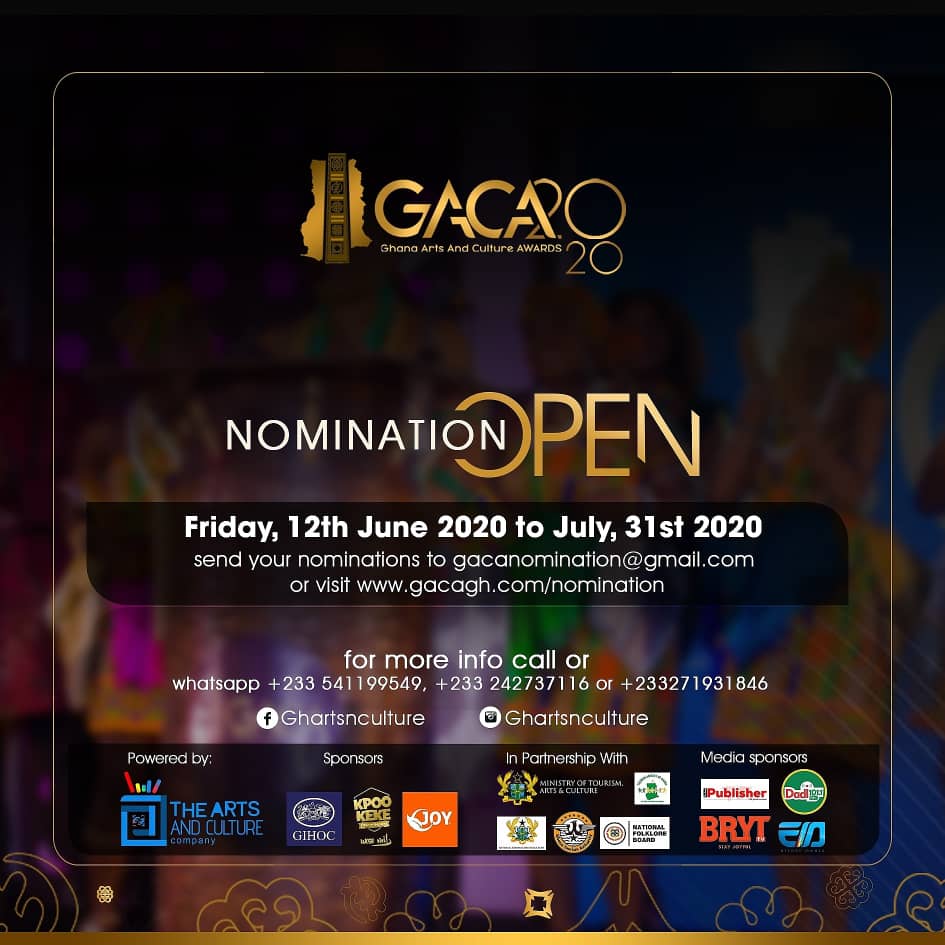
This year’s filing for nominations will be done online. Speaking to us on the rules and changes to the awards ceremony this year, Mr. Frank Saka, the Event Manager for Ghana Arts and Culture Awards said “we at the Arts and culture awards believes we are in a time where There’s been a restriction to movements and social distancing, therefore, we are urging all prospective nominees to visit our website at www.gacagh.com/nomination or send the nomination to gacanomination@gmail.com to file for nomination, adding all relevant materials which the board will need to make their final selection”.
This year’s awards ceremony will see two additional categories added to the already existing ones. The organizers said Outstanding Theatre Performance and Arts and Culture Media of the year (Radio) have been added to appreciate those in that sector promoting arts and culture in Ghana.
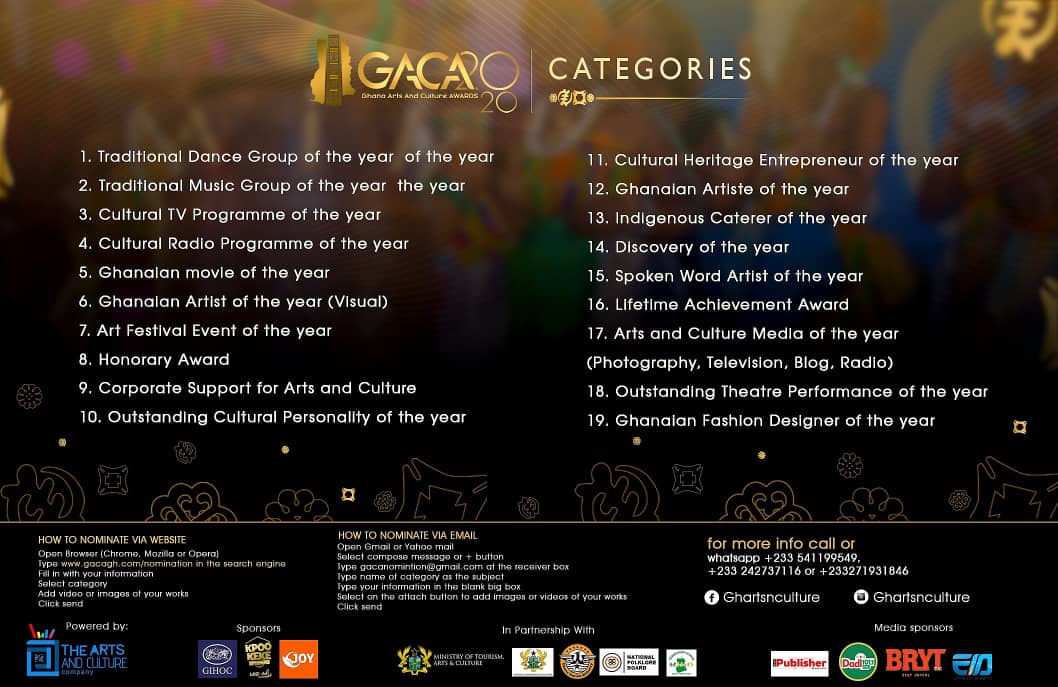
Mr. Mike Frempong the head of Communication and Research at GACA emphasized that the public has from today June 12 to July 31, 2020 to file for nomination and send all questions to the organizers by visiting the website and contacting the numbers there to be attended to. He urged the public to embrace themselves for another experience better than what took place in December 2019.
This year’s awards ceremony is in partnership with the Ministry of Tourism, Arts and Culture, Ghana Tourism Authority, National Commission on Culture, National Folklore Board, Tourism Society of Ghana and sponsored by GIHOC Distilleries Company Limited, Liberty Industry and Joy Industry. We are also being supported by The New Publisher Newspaper, Effect Media, Bryt Tv and Dadi Fm.
Nancy Pelosi and Democrats ‘take a knee’ in kente as they launch ‘Reform Bill’
In a story just published by the Daily Mail, US House Speaker Nancy Pelosi and Democrat members on Monday morning kneeled in memory of that George Floyd as they take steps to unveil massive police reform legislation. The House Speaker and the team of Democrats including some of the Black Caucus members who were in Ghana last year were clad in Kente Stoles which is increasingly becoming a symbol for black movements.
Highlights of her speech:
- ‘We were there for eight minutes and 46 seconds on our knees. My members will attest it’s a very long time,’ Pelosi said
- The bill would ban choke holds, create a national registry of police officers who have been accused of misconduct and abolish non-knock warrants in drug cases
- It would also abolishes qualified immunity, which currently protects police from civil litigation
- Republicans have not signaled if they will support the bill in the Senate
- The legislation comes as the public demands defunding of police departments
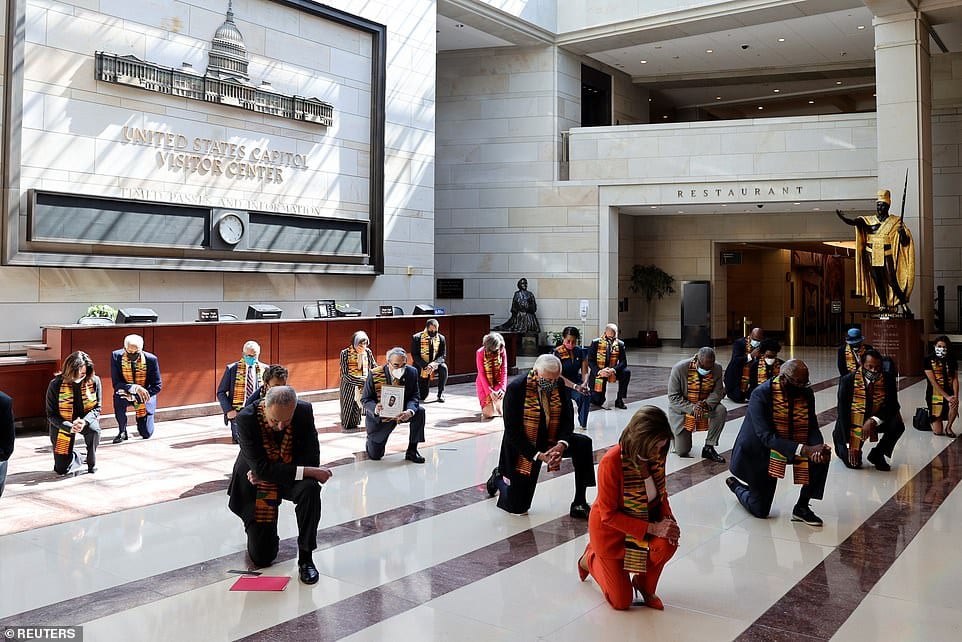
Nancy Pelosi claimed Monday morning that George Floyd is a ‘martyr’ of police brutality as Democrats kneeled for a moment of silence before unveiling a massive police reform bill.
‘The martyrdom of George Floyd gave American experience a moment of national anguish as we grieve for the black Americans killed by police brutality,’ the House Speaker said at the podium. ‘Today this movement of national anguish is being transformed into a movement of national action as Americans from across the country peacefully protest to demand an end to injustice.’
‘The martyrdom of George Floyd,’ she said later in the briefing, ‘has made a change in the world.’
Pelosi said Democrats in Congress are ‘standing with those fighting for justice and action,’ and mentioned other black Americans she say are ‘martyrs’ who have died at the hands of police brutality.
‘Let us, my colleagues, just go over some of those names of martyrdom,’ she said, before listing names like George Floyd, Ahmaud Arbery, Breonna Taylor, Freddie Gray, Michael Brown, Eric Garner, Trayvon Martin and several others.
A team of Democrats, all wearing kente cloths to either honor or stand in solidarity with those with African heritage, gathered for a press conference to reveal details of the bill, claiming the piece of legislation will combat police brutality, especially with the black community.
Members of the Congressional Black Caucus memorably did not boycott Donald Trump’s State of the Union address in 2018, and instead wore brightly colored yellow, green, black and red kente cloths around their shoulders after the president infamously referred to Haiti and some African nations as ‘s***hole counties.’
The unveiling of the proposed legislation follows two weeks of protests across the country in the wake of George Floyd’s death.
Ahead of the press conference, Democrats held a moment of silence at the Capitol for eight minute and 46 seconds – the same amount of time former cop Derek Chauvin had his knee lodged on the back of Floyd’s neck.
‘We were there for eight minutes and 46 seconds on our knees. My members will attest it’s a very long time,’ Pelosi said. ‘It’s a very long time, and I graciously led them in falling over when it was over so that they could do the same thing, but here we are.’
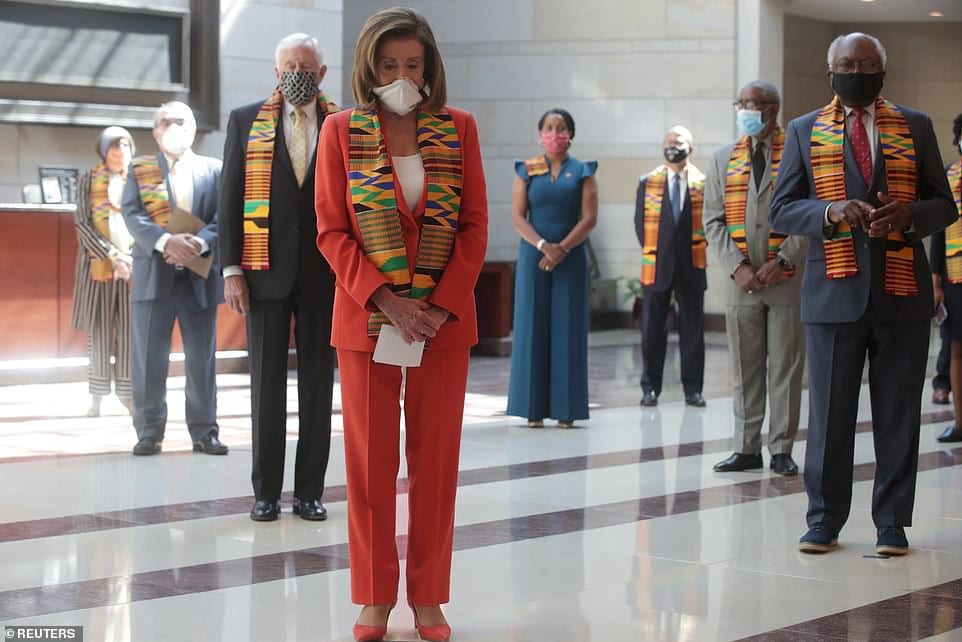
The legislation includes a ban on police using chokeholds or carotid holds, would eliminate no-knock warrants in drug cases and aims to change ‘the standard to evaluate whether law enforcement use of force was justified from whether the force was reasonable to whether the force was necessary.’
The sweeping package would also require nationwide use of body cameras by all police, subject law enforcement officers to civilian review boards and abolish the legal doctrine known as qualified immunity, which protects police from civil litigation, according to congressional sources.
It is unclear if the bill would receive support from Republicans, but the proposal from Democrats comes after Floyd died while in Minneapolis Police custody on Memorial Day.
Senate Minority Leader Chuck Schumer, however, pushed during the press conference on the bill that his Republican colleagues get the bill on the floor of the Senate for debate by July.
‘In the Senate, Democrats are going to fight like hell to make it a reality,’ the New York Democrat said of the legislation, urging Senate Majority Leader Mitch McConnell to act swiftly.
‘Democrats will not let this go away,’ Schumer asserted.
Congressional Black Caucus Chairwoman Karen Bass said during the briefing that she hopes ‘there is a movement that has caught fire.’
A bystander video showed Chavin, a white police officer who was fired shortly after the incident, kneeling on the back of Floyd’s neck for more than eight minutes. The victim repeatedly voiced his pain and claimed he could not breathe, before he went limp underneath Chauvin’s knee.
The incident, which went viral, sparked widespread outrage, unrest and launched more than two weeks of riots and peaceful protests in hundreds of cities across the country.
‘It is time for police culture in many departments to change,’ Bass, who is spearheading the legislation, told CNN Sunday morning.
She added that she hoped the wave of protests would increase pressure on lawmakers to act.
‘We’re in a real moment in our country, the passion that the people are displaying,’ Bass added. ‘That it is going to lay the basis for the momentum for us to bring about the change that we need to do.’
More than a dozen Democratic lawmakers gathered to discuss the bill at a 10:30 a.m. press conference – and while they wore masks, the Democrats did not keep in line with social distancing guidelines, which recommends people remain six-feet from one another.
The legislation would create a national misconduct registry that would show all police officers who have been accused of misconduct.
The National Police Misconduct Registry, Democrats say, would prevent officers found guilty of misconduct too often from moving from one department to another.
The ‘federal registry of all federal, state and local law enforcement officers’ would include misconduct complaints and discipline or termination records, and police departments would be required to declare that each new officer hired is certified.
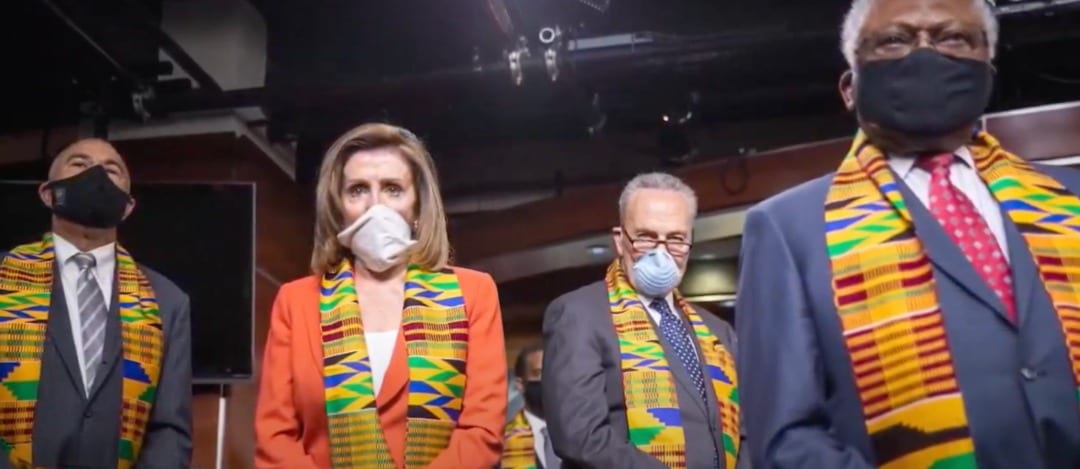
The bill would also officially make lynching a federal crime and include rules that would make it easier to sue a cop for police brutality.
Republicans, who control the Senate, and President Donald Trump will need to support the bill before the new measures aimed at policing become law.
Trump has repeatedly warned on social media that if Democratic candidate Joe Biden were to win the presidency in November, he would defund the police and U.S. military.
Prominent Democrats have dodged the question of defunding police and the bill being proposed Monday does not include provisions that would drain funding from police departments.
The GOP is likely to hang the defund movement on Democrats in an effort to keep their majority in the Senate and paint all their opposition on the left as extreme.
“House Democrats have gone so extreme with their ‘abolish culture’ that they’re one step away from wanting to outlaw fire departments,” Chris Pack, a spokesman for the NRCC, said. “This is insanity and not what Democrats ran on two years ago.”
The Democrat’s legislation does not address the issue of funding or cutting funding to police departments – but does make contingent on police receiving training on racial and implicit bias at the federal level.
Bass did assert, however, that the bill “does not provide any new money for policing.”
Floyd’s death in Minneapolis, where a police officer knelt on his neck for nearly nine minutes, was the latest in a string of killings of black men and women by U.S. police that have sparked anger on America’s streets and fresh calls for reform.
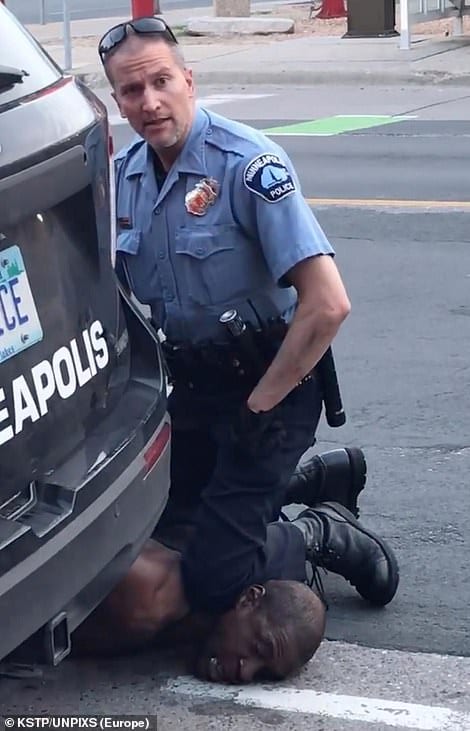
Source: dailymail.co.uk
Ghanaians and Diasporans Come Together to Remember George Floyd in Memorial Service
Friday June 5, 2020 – DuBois Centre Accra
Together with the Diaspora African Forum, the Beyond the Return/Year of Return team, Ghana Tourism Authority, the African American Association of Ghana, the Diaspora Affairs Office, members of the diaspora community and some Ghanaians, a ceremony was held in memory of George Floyd, the African American who was killed by police in the United States. Floyd’s killing was captured on video and has sparked protests and rallies from people of all races around the world.
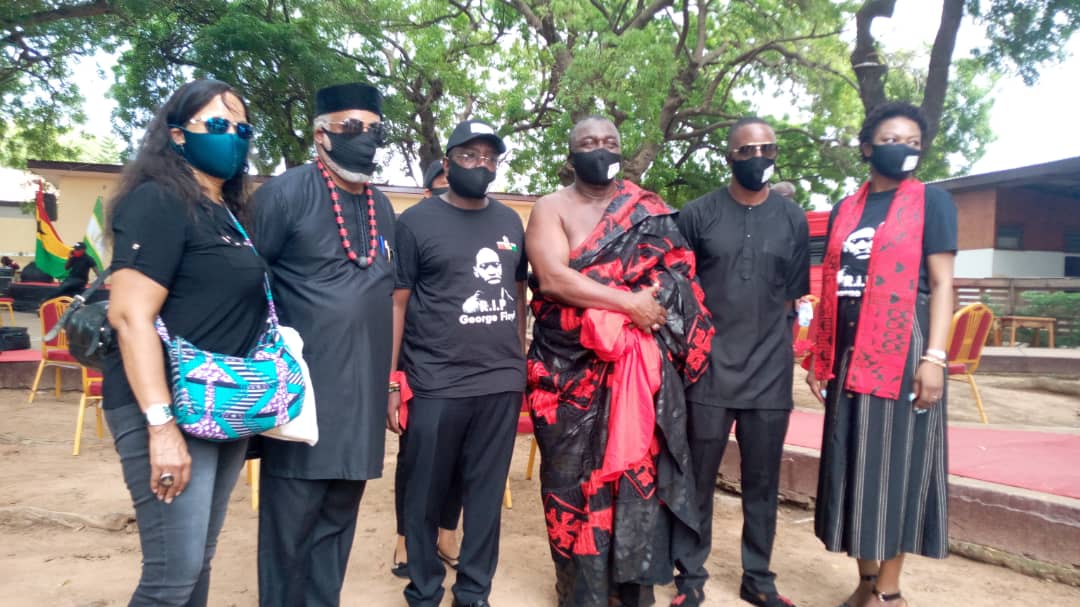
The memorial service in Ghana was held on the grounds of the W.E.B. Dubois Centre on the morning of Friday 5thJune 2020. Floyd’s name was also memorialized on the wall at the Diaspora African Forum, where other people from the diaspora have their names forever remembered. The service shed light on the negative experiences of African Americans and all black people from around the world, due to racism.
Hon. Barbara Oteng-Gyasi, Minister of Tourism, Arts and Culture, delivered a message that resonated with the diaspora community. She spoke of the injustices that face black communities not only in America but in other parts of the world. “We gathered to pray and remember as Martin Luther King said, ‘Injustice anywhere, is a threat to justice everywhere,’” she said. “We continue to open our arms and invite all our brothers and sisters home, Ghana is your home. African is your home. We have our arms wide open, ready to welcome you home,” she said with her arms spread, “…Africa is waiting for you.”
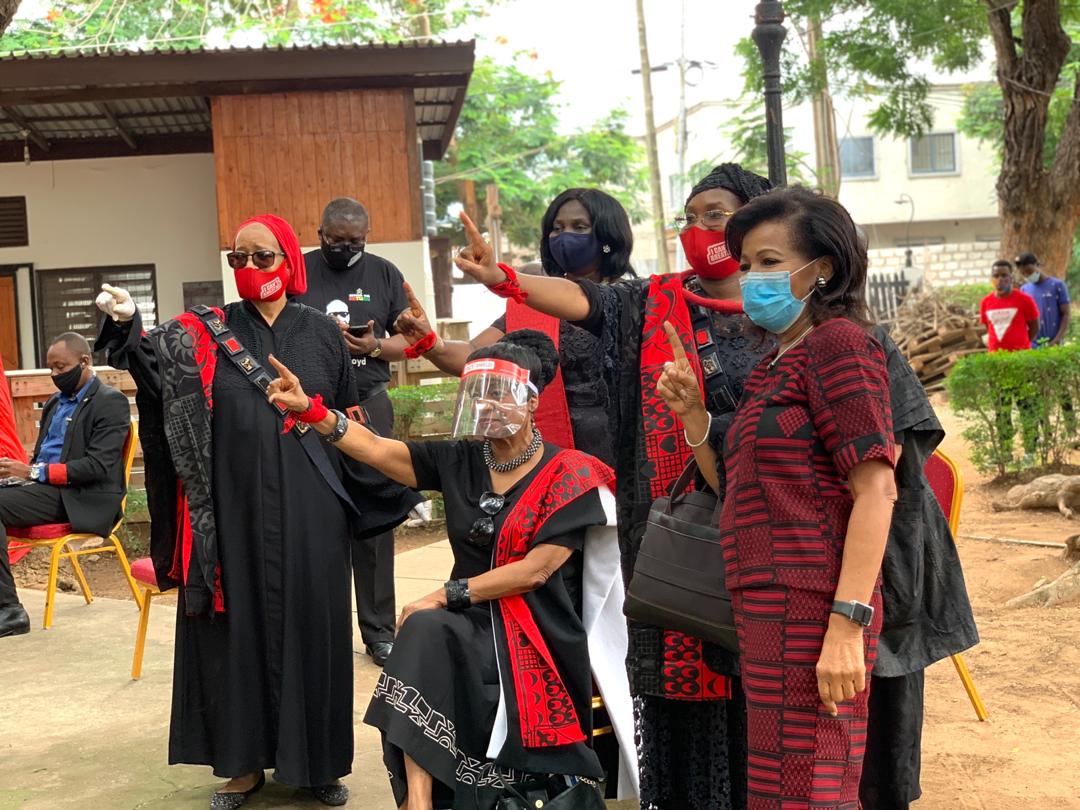
Ambassador Erieka Bennett, Head of Missions at the African Diaspora Forum, spoke of the pain felt by black people because of the ongoing injustices. Coming together was important in remembering not only George Floy, but the many others who have lost their lives in a senseless way because of systemic racism. “We have got to touch the conscience of the world to stand with us now,” Ambassador Bennett said.
Our brothers and sisters of African descent have suffered the long-lasting effects of racism, which is rooted in the history of the enslavement of Africans. Last year, Ghana commemorated the 400-years since the first documented ship of enslaved Africans arrived in the English colony, which is now Virginia, U.S.A. Thousands of African Americans and others from the global African family, travelled to Ghana to commemorate and to honour the resilience of the African spirit. It’s only natural, that we stand in support of our global African family as they face struggles and fight for change. Our community also acknowledges that many Ghanaians and other Africans also live in America and other parts of the world where they too are victims of the same systemic racism
Rabbi Kohain, Executive Director for PANAFEST Foundation, was one of the speakers during the memorial service. “This is not a fight just for African Americans, not a fight just for African people, but it’s a fight for humanity,” Kohain told the media after the service. He spoke on how important it was for Ghana to perform this exercise because other African countries often take their lead from Ghana, having been a country known for its Pan Africanism. “The justice that we seek is a justice that sees every human being equal before the eyes of the law. It’s not just about specific individuals but about the systemic institutions that have supported racism,” he said.
“Ghana has taken the leadership role on honouring and doing this…and we want to thank the Minister for the wonderful message she gave,” said Ambassador Erieka Bennett. “The message is ‘We are one’ regardless of where you’re from, if you are a black person you are an African and that’s the message, we want people to understand.”
Diaspora Community In Ghana Protest In Solidarity With Black Community In U.S.

It has been heartbreaking as Africans to see our brothers and sisters in the diaspora, living in America continuing to suffer injustice. The killing of George Floyd has sparked worldwide protests in support of African Americans. Over the last few days, Floyd’s killing has sparked outrage across the U.S. and worldwide, leading to many protests, rallies and petitions for change.
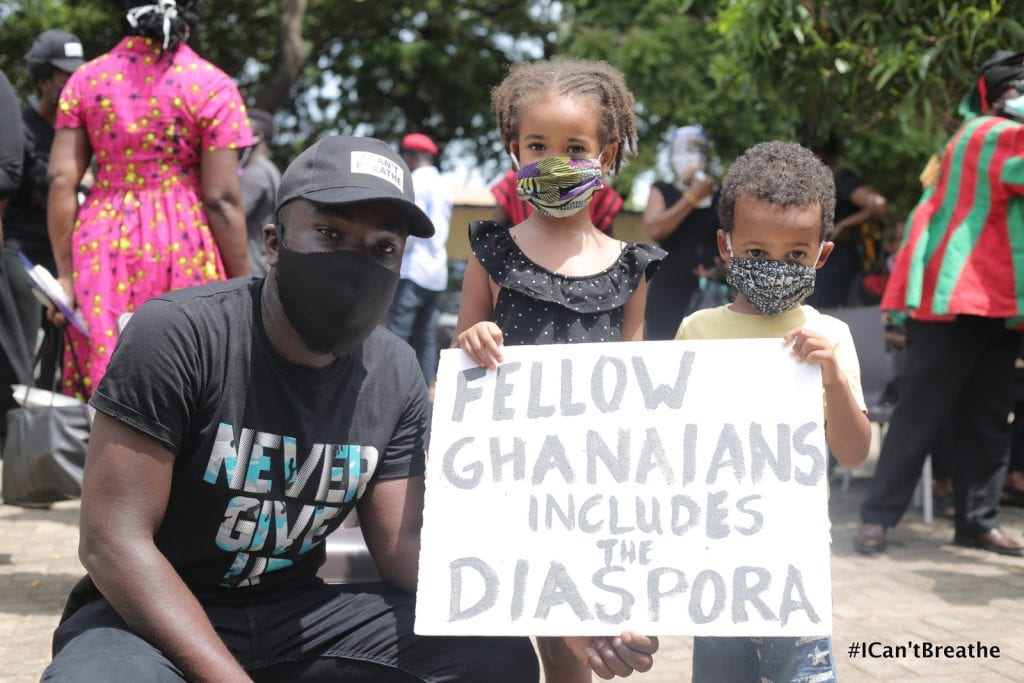
On the morning of June 1, 2020, a peaceful protest was organized and attended by representatives of the diaspora and local Ghanaian community to lend our voices to the ongoing issues affecting the black community. Ambassador Erieka Bennet, Head of Mission at Diaspora African Forum, Akwasi Agyeman, CEO of Ghana Tourism Authority and Coordinator for Beyond the Return, Rabbi Kohain, Executive Secretary for the Panafest Foundation, Jermain Nkrumah of Diaspora Network Television and Rev. Dr. Princess Ocansey, Migration Expert of Diaspora African Forum on the African Union Labour Advisory were key speakers at the protest. A petition signed by all attendees was delivered to the U.S. Embassy.
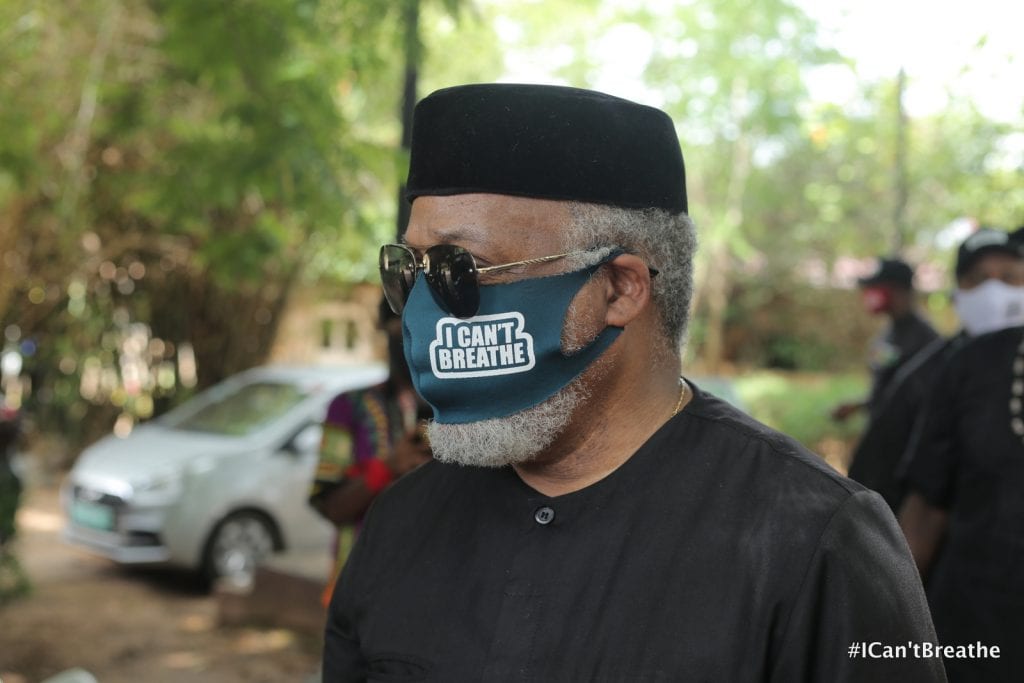
Last year, Ghana continued to strengthen its bond with the diaspora with its Year of Return campaign which saw many diasporans visit not only Ghana but several other African countries. Ghana thus paved the way and many have also welcomed the statement released on the President’s social media handles related to the killing of George Floyd.
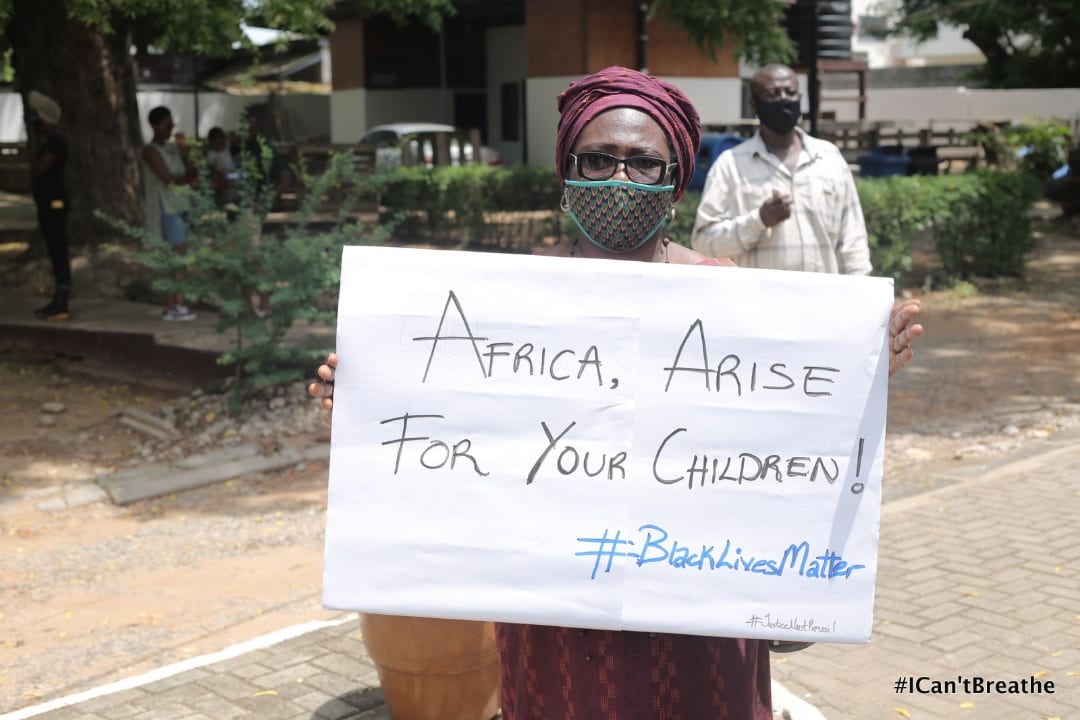
In a related new, President Nana Addo Dankwa Akufo-Addo, released a statement through his social media expressing his deep condolences in the death of George Floyd. He said, “It cannot be right that, in the 21st century, the United States, this great bastion of democracy, continues to grapple with the problem of systemic racism.”

‘Beyond The Return’ Steering Committee Inaugurated
The Minister of Tourism, Arts and Culture, Barbara Oteng-Gyasi has inaugurated a Cross-Sectional Steering Committee to work with the Ghana Tourism Authority in the implementation of the “Beyond the Return” project.
‘BEYOND THE RETURN’ is a follow-up to the successful ‘YEAR OF RETURN, GHANA 2019’ campaign which commemorated the 400 years of the first enslaved Africans arriving in Virginia, USA, spearheaded by the President of the Republic of Ghana, His Excellency Nana Addo Dankwa Akufo – Addo.
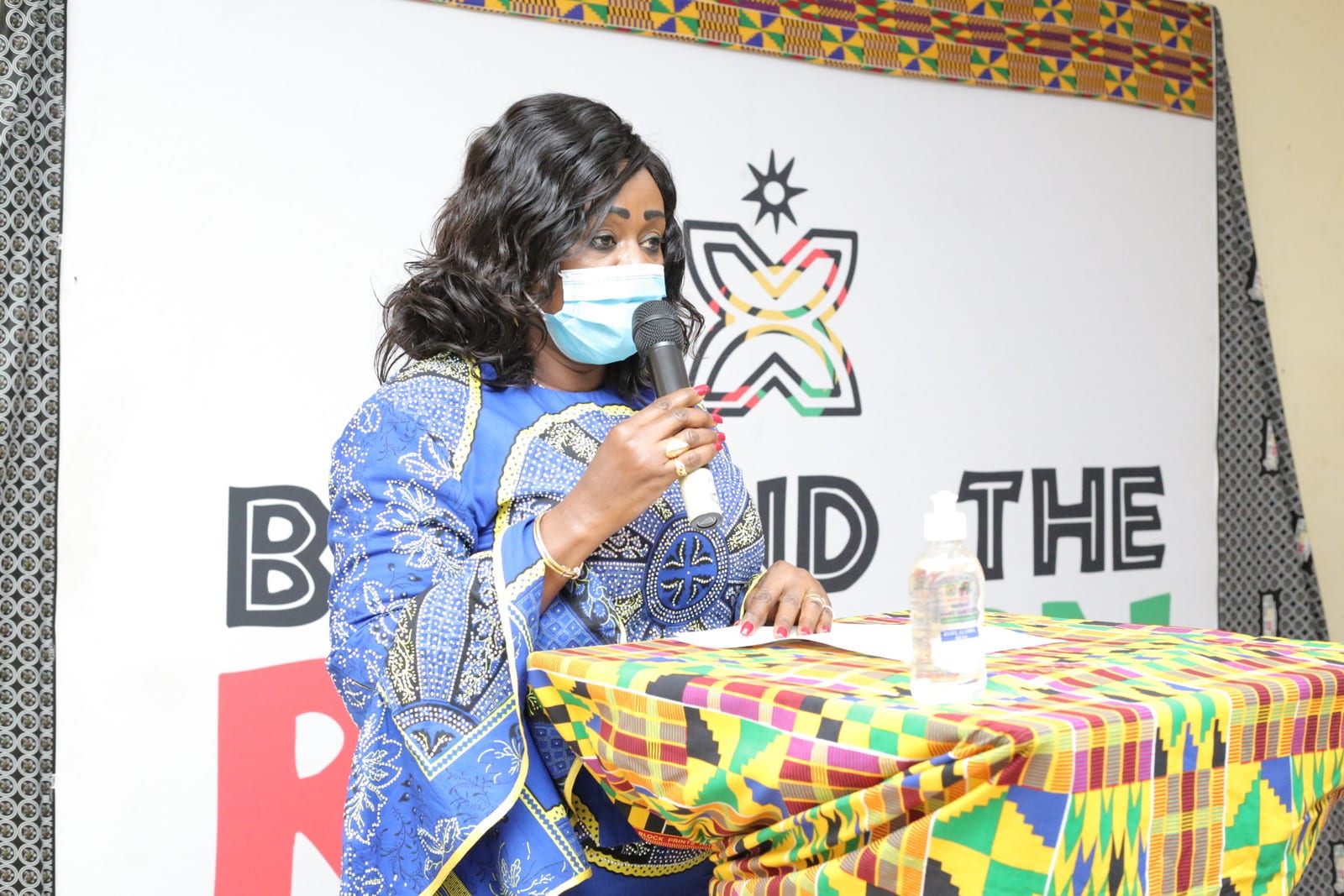
Inaugurating the Committee, the Minister indicated the trust the Ministry had in the team assembled. The Project Coordinator, Mr. Akwasi Agyeman, CEO of the Ghana Tourism Authority recounted the successes of the “Year of Return” and indicated COVID-19 has provided a new challenge to the implementation of the project but the Authority is poised to work with other stakeholders to ensure success.
BEYOND THE RETURN’ is based on seven (7) pillars namely, Experience Ghana, Invest in Ghana, Brand Ghana, Celebrate Ghana, Pathway to Ghana, Give Back to Ghana and Improve Tourism and Heritage Assets.
Representatives from Ten (10) institutions who constitute the Steering Committee would ensure the successful execution of the campaign.
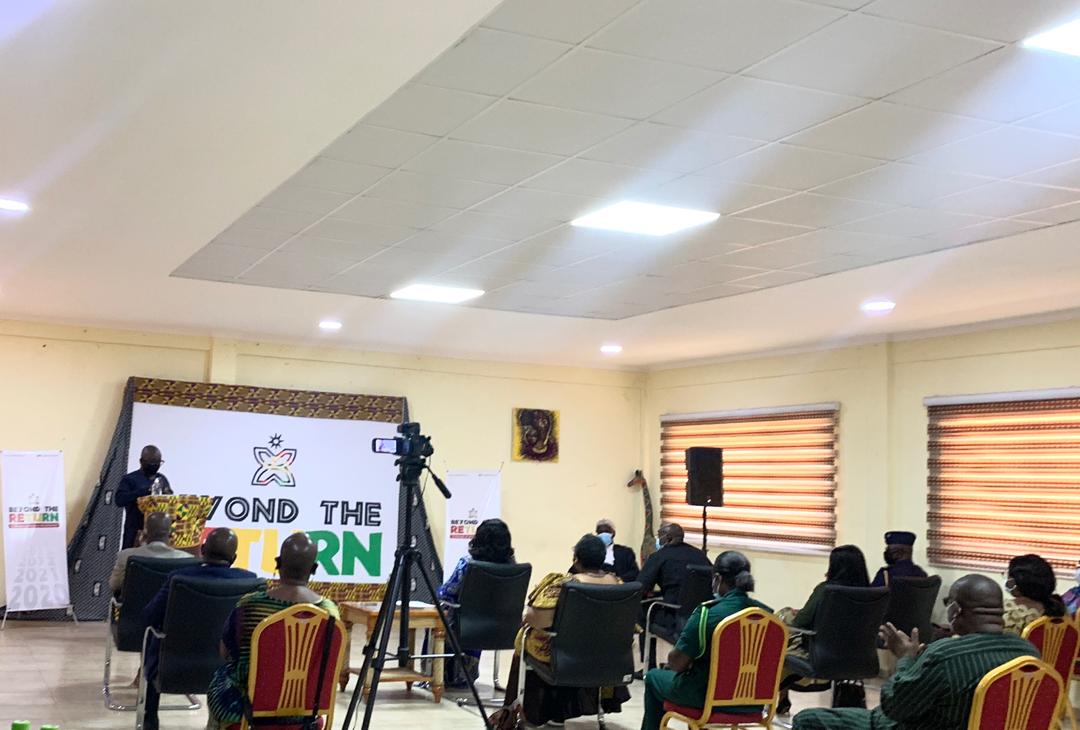
The Committee members include Lawyer Kwame Boateng (GTA Board), Akwasi Awua Ababio (Diaspora Affairs, Office of the President), Lawrence Azumah (National Security), Barbara Benisa (KLM Royal Dutch), Esi Sutherland-Addy (PANAFEST Foundation), Edith Penelope Arhin (Ghana Immigration Service), Jessica Ayivor (AAAG), Khadija Iddrisu (Foreign Affairs), Ekow Sampson (GTA), Amy Appiah Frimpong (National Theatre of Ghana), Ben Anane Nsiah (GTA), Kingsley Ofosu Ntiamoah (GMMB), Roberta Dawson-Amoah (GTA), DCOP/Dr. Sayibu Pabi Gariba (Ghana Police Service), Dentaa Amoateng (GTA Board), Yofi Grant (GIPC) and Akwasi Agyeman (GTA) who is also the Project Coordinator for the Steering Committee.
READ MORE: ABOUT BEYOND THE RETURN AND THE 7 PILLARS
‘BEYOND THE RETURN’ is not only to promote tourism but to foster economic relations, trade and investments from the diaspora in Africa and the world at large.
All About African Beads
The term African Beads is used to refer to both beads locally produced by indigenous people of the African continent and Trade Beads that have travelled from other parts of the world and now circulate or were recently sourced from Africa.
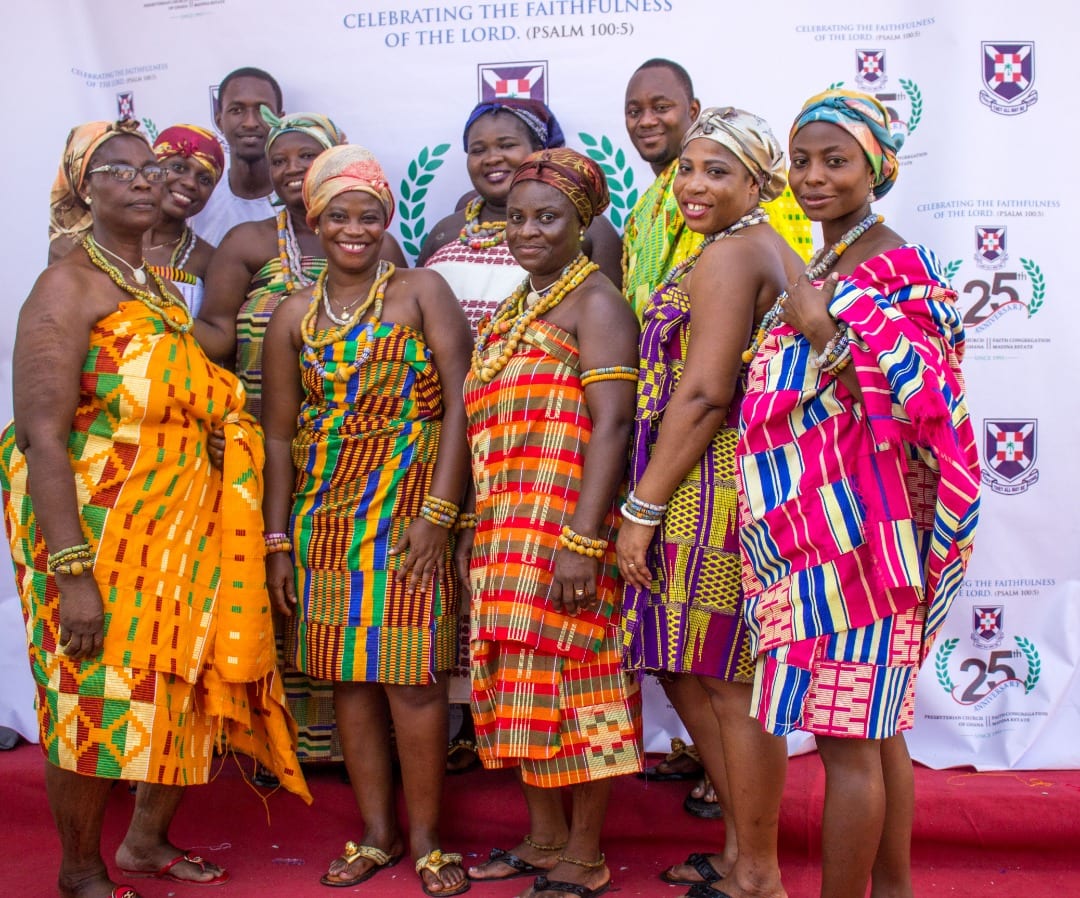
Together, these beads have played an enormous role in the culture, fashion, economy and artistic expression of the African people. Today, they are cherished by collectors, jewellery makers, and everyday people who just love wearing African beads! African tribal beads and glass beads also hold a special mythical significance as well.
Beads and Bead- making have a long history in Africa. Beads have been made by indigenous Africans for thousands of years. In ancient times, Egyptians, Greeks, and Indians established trading bases in East Africa and eventually the Arabs invaded in the eighth century and established trade routes with the wealthy kingdom of Ghana in modern-day Mauritania. The Arabs brought glass beads to the Niger Delta to trade for gold and slaves.
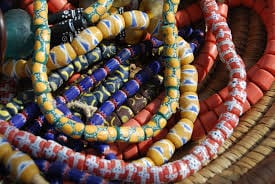
The modern production of beads is in some sense a family tradition, where tools and techniques are passed from one generation to the next. Bead-making is a labour-intensive process and since many beads are hand-made, there is variability in the appearance of individual beads even within a single strand.
African beads are made from a diverse array of materials. Some of the oldest beads were made from natural materials such as stones, clay, plant materials such as doum palm nuts and bamboo stems, animal materials such as ostrich eggshells, bones such as the Bank Batik Bone bead of Kenya, buffalo horn, and marine shells such as the Conus.
Due to its long history, beads continue to play a role in many traditional rites and ceremonies such as coming-of-age, circumcision, marriage, burial, and local festivals.
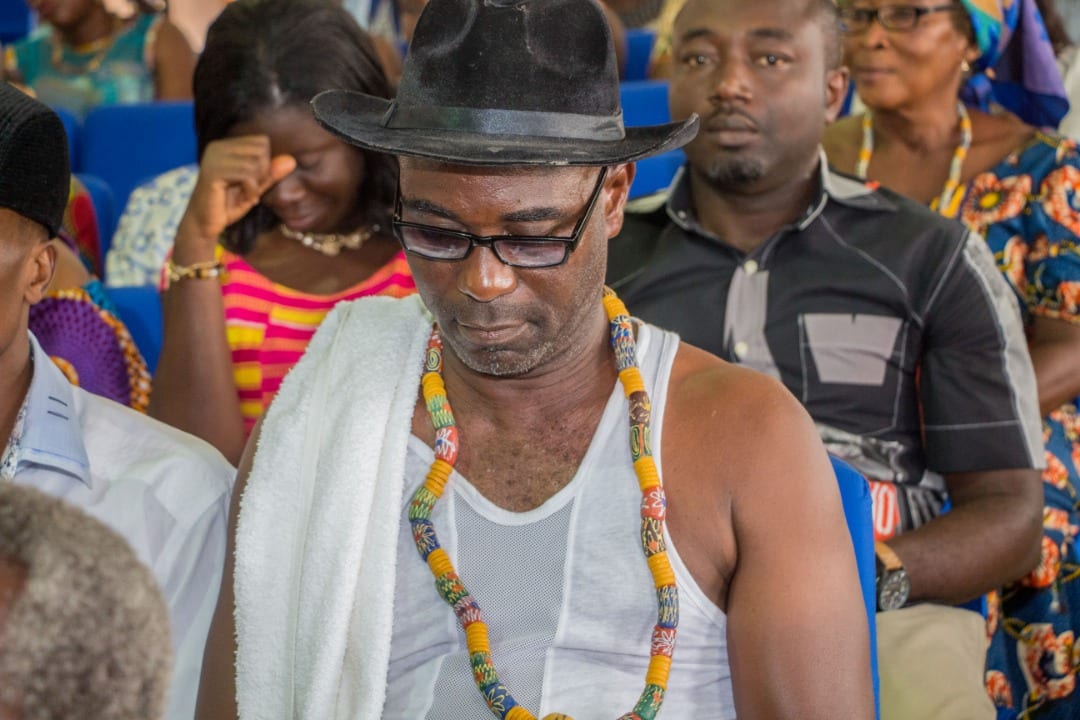
The number of different African and African Trade Bead varieties in existence today is enormous. Any attempt at classification is further complicated by the fact that many beads have been reworked and redecorated over time to conform to local tastes and preferences. Some of the most well-known varieties of African beads today are Krobo Beads, Kakamba Beads, Mali Clay Beads and Mali Wedding Beads, Chevrons, Millefiori, Vaseline Beads, White Heart Beads, Kiffa Beads, and Hebron Beads.
Africa’s fascinating bead history predates the African Trade Bead era by over 75,000 years; the first known examples found in the Blombos Cave, on the South African coast (near Cape Town) in 2004. Archaeologist Chris Henshilwood uncovered a wealth of ancient artifacts, including the first known beads for decorative purpose made from the shell of Ostrich eggs.
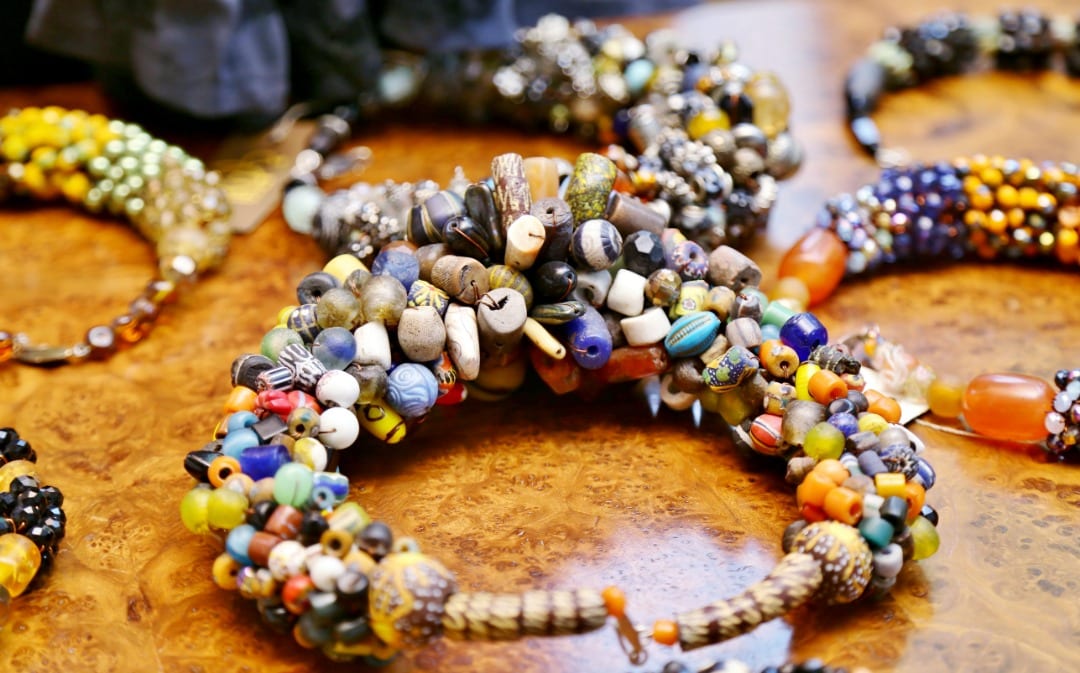
Similar beads thought to be over 12,000 years old have been found within Kenya, Libya and Sudan adding evidence to the history of the Turkana people who once recognised such beads for their value as currency. Egg-shell beads would be presented to women as part of their dowry prior to marriage. It is also thought such bead-strands were exchanged for cattle and goods in the region. Cowrie shell beads and Bone Beads are thought to be among the first types of beads used for trade purposes within Africa, until the 4th Century B.C when glass beads found their way into Africa from Egypt and Western Europe.
Evidence of the glass bead production which dominated the African economies for nearly 700 years has been found within both Egypt and South Africa, dating back to the 9th Century. These minuscule beads were woven into the opulent collars, head-dresses and robes worn by Royal family members, courtiers and those of nobility. Burial sites such as the Valley of The Kings have allowed us to uncover a significant wealth of jewellery and decorative artifacts which were made from glass. Glass beads also made their way into Africa from Portugal during the 4th Century, the unofficial beginning of Africa’s booming trade era.
It is not until the 12th Century that we see real evidence of glass bead production within the notable manufacturing areas of today, such as Ghana, in the Krobo land, Ethiopia and Nigeria. The methods used within this production are not dissimilar to those practised today for Recycled Glass Bead production; where ground particles are compacted prior to firing. The early method is referred to as wet-core powder glass bead production and was a painstakingly slow process. Such beads allowed tribesmen to ply trade with neighbouring regions, but were predominantly used for rituals, rites of passage ceremonies and holistic healing.
From the 14th Century, explorers began landing upon the shores of South Africa bringing with them colourful glass beads to trade for the safe passage through regions and eventually for the riches of this foreign land which included palm oil, fur and spices.
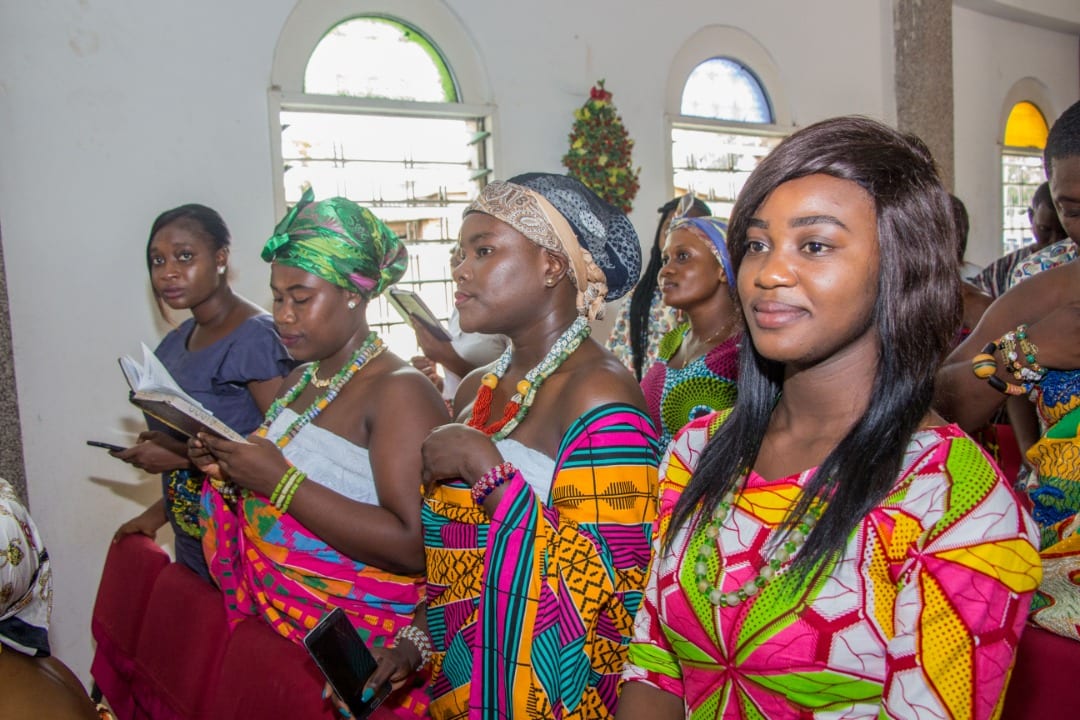
The market for slaves is also thought to have developed during these early years, and would soon become fundamental in boosting Africa’s regional economies. The production of Africa’s currency began to increase within Venice during the 1500’s. Stripped Chevrons were the most common product of this era, although Millefiori Beads found particular favour with African tribal chiefs during the close of the century. The Millefiori boom would last a further 400 years.
Africa’s Golden Trade Era stretches from 1700 to 1920; a period that saw the highest levels of trade and economy in history. Venetian Trade Beads were often referred to by their pseudonym slave beads due to the high value they realised in exchange for slaves. Doughnut and Pineapple shaped Chevron Beads with colours range from 4-12 in number were among the most common. However, pale Venetian Ghosts, King Chevrons and Elbow Millefiori Beads were also among the most prized
Source: Graphic Online
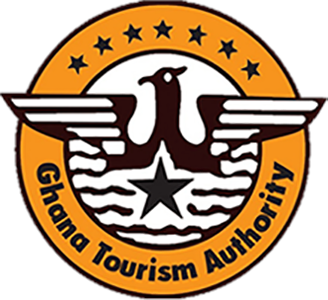

 Call Center
Call Center
